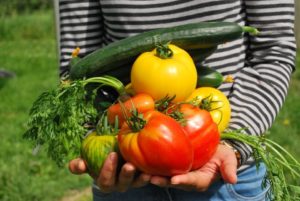How The Industry Is Ensuring Consumer Success With Plants
 After spending years researching consumers and learning about what it might take to convert more people into gardeners, we here at Greenhouse Grower RETAILING reached out to growers and suppliers for their ideas on how to attract and keep new plant customers.
After spending years researching consumers and learning about what it might take to convert more people into gardeners, we here at Greenhouse Grower RETAILING reached out to growers and suppliers for their ideas on how to attract and keep new plant customers.
We’ve heard back from a number of them, and on a wide range of topics. In this first article, we’re sharing what they had to say about ensuring gardening success. Consumer success is vital to a long-term love of plants, after all.
Doug Cole, DS Cole Growers:
Here’s a concern I have: Consumers want success. They want success all season long.
There are tried and true plants such as pansies that people still buy, even though most people know they will not hold up all summer in most of our states. On the other hand, we have been promoting a number of genera which have similar issues as pansies, but the consumer does not realize this at the time of purchase.
For example, the homeowner may be expecting more from diascia, nemesia, and bacopa than the plants can deliver in the heat of the summer. Is there a solution to this? Should we put more effort into signage, telling buyers these are cool season crops?
Jennifer Calhoun, Benary
Millennials don’t have “gardens” so they want a plant they can put on their fourth floor apartment balcony, or better yet on a shelf in their living room near a window. We give them too little information to help them be successful under those circumstances.
But what we don’t realize is that if the plant dies, they feel personally responsible for killing another living thing, which is so painful that they would prefer not to take the chance a second time. If we sold larger plants and gave easy to understand instructions that can be photographed, we all would probably have much better luck.
Jeanine Standard, Proven Winners
What we need to do, and what we are doing, is making gardening easier — with plants that grow in sun or shade, perennials that bloom for months at a time, and offering smaller sized flowering shrubs that fits today’s landscapes.
Randy Uhl, Green Fuse Botanicals and the Henry F Michell Co.
Food gardening will continue to increase with innovative products and improved genetics for more fruits/vegetables with improved disease resistance. Breeders are looking at fruit placement on the plant allowing for a more desirable look in containers and to make it easier to produce in smaller area.
Jessica DeGraaf, Proven Winners
Our opportunity lies in the fact that we are able to solve problems and provide solutions for this group. From new and innovative genetics to information and ideas at the touch of a fingertip, we need to meet them where they are.
Their first interaction with our products will most likely be online before they go to the garden center. Engaging content is critical — we need to simply and effectively show how fun, easy and rewarding it can be to use our products. This is why we’ve partnered with Laura and Aaron from Garden Answer. Their down-to-earth, relatable style resonates with a totally new audience, teaching them how to incorporate plants into their everyday life with very simple, easy projects.










